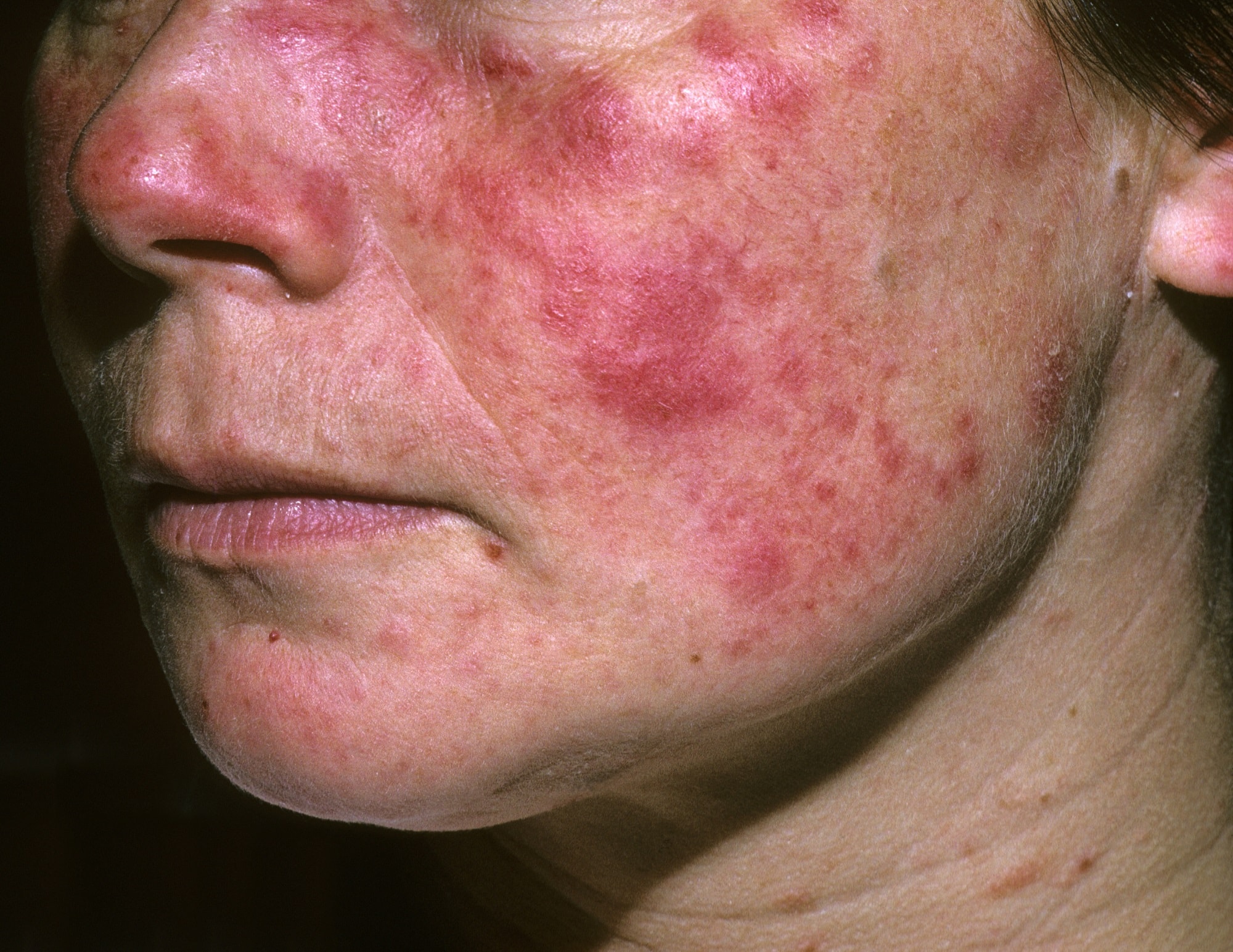
It is an autoimmune disease which the immune system mistakenly attacks healthy tissue. SLE is the most common type of lupus erythematosis.
Systemic Lupus Erythematosus Symptoms
Vascular headaches, epilepsy, or psychoses may be initial findings. Everyone with SLE has joint pain and swelling at some time. This condition can affect joints of the fingers, hands, wrists, and knees.
Manifestations referable to any organ system may appear.
-
Joint problems
-
Skin and mucous membrane problems
-
Lung problems
-
Heart problems
-
Lymph node and spleen problems
-
Nervous system problems
-
Kidney problems
-
Gastrointestinal tract problems
Systemic Lupus Erythematosus Diagnosis
SLE should be suspected in patients, particularly young women, with any of the symptoms and signs.
Laboratory testing differentiates SLE from other connective tissue disorders. Routine testing should include the following:
-
Antinuclear antibodies (ANA) and anti–double-stranded (ds) DNA (anti-dsDNA)
-
Complete blood count (CBC)
-
Urinalysis
-
Chemistry profile including renal and liver enzymes
Systemic Lupus Erythematosus Treatment
Treatment for lupus depends on symptoms and how severe they are. Treatment can help:
-
Ease symptoms
-
Bring down inflammation
-
Prevent and relieve flares
-
Prevent organ damage and other health problems
Medications for lupus include:
-
Anti-inflammatory drugs
-
Antimalarial drugs such as hydroxychloroquine, are useful for joint and skin manifestations.
-
Corticosteroids: Use corticosteroids for moderate or severe SLE and an immunosuppressant for active lupus nephritis, CNS lupus, skin manifestations that do not respond to hydroxychloroquine.
Apart from medication, the following may help to relieve pain or reduce the risk of a flare:
-
Avoid stress, as far as possible
-
Doing regular exercise when possible
-
Avoiding exposure to the sun
-
Applying heat and cold
Diet Therapy for Systemic Lupus Erythematosus
If patients have lupus, experts believe an anti-inflammatory diet pattern may help cut back on flares. Patients can increase the intake of fruit, vegetables, whole grains, omega-3s, and healthful fats, and reduce their intake of pro-inflammatory foods such as those high in saturated fat, high-fat meats, processed foods, and excess sugar.
It’s important during a lupus flare to make sure you’re adequately nourished with plenty of calories and lean protein.
There are some key foods that are important for your diet.
-
Fruits and vegetables
-
Healthy fats and oils (The main sources for omega-3 PUFA are fish oil, olive oil, canola oil, flaxseed oil, fish (salmon, tuna, sardine, herring))
-
Low Calorie Foods
High calorie foods can cause weight gain and inflammation so it is important to make healthy choices.
-
Antioxidants
-
High Calcium and Vitamin D Intake
Some medications for lupus deplete your body of calcium, so including calcium in your diet is essential. It can be found in foods like wild salmon, fortified soy milk, mushrooms, broccoli, kale, sardines, fortified milk.
Patients should avoid some foods:
-
Foods high in saturated fat, trans fat, and cholesterol.
-
Red meats and high fat meats like liver, organ meats, and dark meats.
-
Alcoholic beverages, salty foods, sweetened beverages, candy, snacks, sweets, and alfalfa sprouts.
-
Simple carbohydrates and refined carbohydrates.
-
Garlic: Garlic contains three ingredients (allicin, ajoene, and thiosulfinate) that can amp up the immune system and cause an overactive response in people with lupus.
-
Nightshade vegetables such as tomatoes, eggplant and peppers.
-




